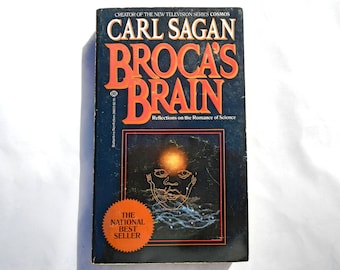About BROCA’S BRAIN. Carl Sagan, writer and scientist, returns from the frontier to tell us about how the world works. In his delightfully down-to-earth style, he. Brocas Brain By Sagan Carl Broca's brain wikipedia, broca's brain: reflections on the romance of science is a 1979 book by astrophysicist carl sagan its chapters were.
“Can you be sure that others have not come before you and destroyed the pristine state of the native myth? Can you be sure that the natives are not humoring you or pulling your leg?
Science

Bronislaw Malinowski thought he had discovered a people in the Trobriant Islands who had not worked out the connection between sexual intercourse and childbirth. When asked how children were conceived, they supplied him with an elaborate mythic structure prominently featuring celestial intervention. Amazed, Malinowski objected that was not how it was done at all, and supplied them instead with the version so popular in the West today – including a nine-month gestation period. “Impossible,” replied the Melanesians. “Do you not see that woman over there with her six-month-old child? Her husband has been on an extended voyage to another island for two years.” Is it more likely that the Melanesians were ignorant of the begetting of children or that they were gently chiding Malinowski?
Broca's Brain Carl Sagan
If some peculiar-looking stranger came into my town and asked ME where babies came from, I’d certainly be tempted to tell him about storks and cabbages. Prescientific people are people. Individually they are as clever as we are.” ―. “There is a well-intentioned pious belief that they are all fundamentally identical. In terms of an underlying psychological resonance, there may indeed be important similarities at the cores of many religions, but in the details of ritual and doctrine, and the apologias considered to be authenticating, the diversity of organized religions is striking.
Human religions are mutually exclusive on such fundamental issues as one god versus many; the origin of evil; reincarnation; idolatry; magic and witchcraft; the role of women; dietary proscriptions; rites of passage; ritual sacrifice; direct or mediated access to deities; slavery; intolerance of other religions; and the community of beings to whom special ethical considerations are due.